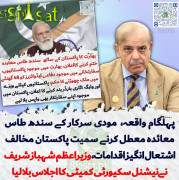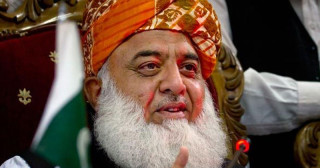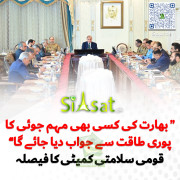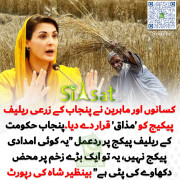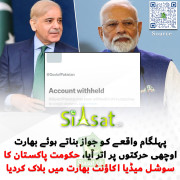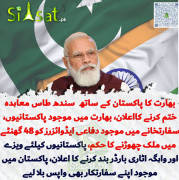Re: Islam doesn't allow to collect taxes
http://www.parwez.tv/ebooks/nizaam-e-raboobiat/nizaam-e-raboobiat .html
http://www.parwez.tv/urdubooks.html
1)In quranic context muslims are either living under unislamic rule before creation of islamic state or they are living under islamic rule after its creation. The same happens after existence of islamic state comes to an end.
2)In quranic context the islamic state is either at its beginning or its completion or nearing its end
Each of these states of existence demands constant change in muslim mindset, attitude and behaviour so that islamic objectives are fulfilled.
a)When there is no islamic state in the world the foremost duty of muslims as an ummah is to create one and to create one demands organisation and regulation of muslim community in a way that fulfils this end goal. Therefore all muslims must come together to fulfil this goal. This is most demanding phase of islam.
b)When there is an islamic state in the world then foremost duty of muslims as an ummah is to ensure the state remains in existence. This demands properly organised and regulated muslim community that is capable of fulfilling this objective.
For all this beginning is always with proper education that could enable muslims to accomplish the set goals. Random learning about islam is even though islamic learning but it is not in its proper priority order and therefore unlikely to lead to any successful end.
Islam is all about proper human brotherhood and brotherhood cannot be based upon personal gains of individuals at the expense of wider brotherhood. If any member of your family lives against family interest you will oppose him or her so the same applies to individuals whop love to oppose human brotherhood so that they could use and abuse others. Islam is therefore about proper management of human population and provided resources, so that humanity as a whole could grow and develop into a blissful and dignified human community. This is why unity, peace, progress and prosperity of mankind are islamic goals. It is for this reason oppression, suppression, injustice, cruelty, animosity, divisions and hatred are all anti islamic ideas and actions according to the quran.
From this it is not difficult to see what islamic way of life is all about. It depends on in what condition the humanity is and what needs to be done to make its existence blissful and dignified.
Islam is not a business for profit way of life. Instead it is about making all services available for all free of charge at the point of need by way of taking stock of the situation and distributing land and resources and means of production and distribution in such a way that fulfils this objective. Nothing belong to anyone other than Allah and Allah has given everything to humanity as a community to organise and regulate itself to use things to fulfil all its needs. This is why all responsibilities need to be worked out constantly and distributed so that society works like a machine with all its components working properly to fulfil its purpose or goal.
Islamic society is not based on money of any kind but for dealing with outsiders if need be. It is a family based system that you do not deal with each other as buyers and sellers of things.
No system based upon buying and selling can be just and fair because there is no way to properly measure what people produce or distribute. The quran tells people that whatever they do, it is not their labour alone but God also plays part in it ie where do you get the land from? Where do you get the seed from to plant and sources of energy that help you do things and even you yourselves are created and are given brains and bodies so all things belong to Allah and so Allah demands that you live the way he says. This is why whatever people produce, they could not have done it without Allah. So if anyone claims he can have this or that because he worked for it then he is not stopped from having fruit of his labour but he cannot have the share of Allah in there. The question of private ownership therefore does not arise in quranic context. This does not mean people cannot have things to use them but that it is up to community as a whole to decide how they want to use their labour and production for the benefit each other. if community has one hundred apples, one hundred oranges and one hundred bananas and there are one hundred people then each has right to have an apple, an orange and a banana. It is then up to individuals to eat their given apples, oranges and bananas or exchange them with each other. One person cannot say to another I worked harder than you so I have right to take two of each. The idea is to produce as much as you can and take only as much as you truly need.
People think only air and water is free and for rest of the things they need they must pay for them. This is not true, rather everything is provided free of charge by Allah including information and ability to understand it. However, some people are most stupid among human beings who think might is right not rule of law that is properly founded. This is why they try to take control of land and resources and means of production and distribution and cause wars by controlling livelihood of humanity. It is that mindset, attitude and behaviour that will eventually lead to selling of water and air as well if masses do not wake up and see where they are being led by rulers, money lenders and mullahs.
http://www.jangforum.net/index.php?PHPSESSID=q49fqk4jktgcutk3tfcg1t6fv3&topic=5206.0



